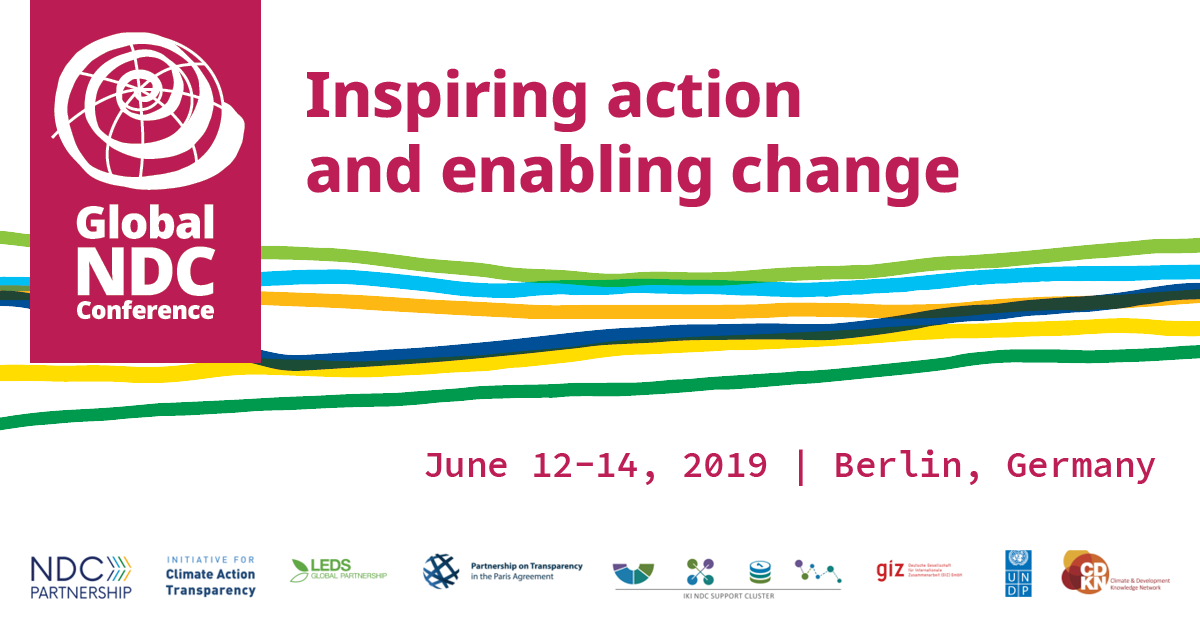Translating Knowledge into Climate Action

Bonn, 11 June 2019. The increasingly palpable effects of climate change are finally leading to repercussions in the political sphere. As young people strike in the “Fridays for Future” movement, mainstream politicians and their parties have almost unanimously seen the results of the recent European elections as a wake-up call in acknowledgement of insufficient climate action. At the same time, we are entering a critical phase in international climate policy. In 2015, the Paris Agreement compelled almost every country to pledge some level of climate action through their national determined contributions (NDCs). These, however, do not nearly add up to enough action to keep global temperature rise within safe limits. By 2020, countries are asked to update their NDCs. This is the opportunity to raise ambitions.
Still, tackling climate change is a huge and complex task and it is often hard for countries to know where to begin. While the processes of multilateral climate governance are essential to give legitimacy to global climate policy by establishing common objectives and rules, they are not always well-suited to driving innovation and learning. For this reason, governmental and institutional partners come together in less formal ways. An important example of this is the NDC Partnership, a coalition of more than 130 countries, international institutions and NGO partners that work together to accelerate NDC implementation.
It is in this spirit that the second Global NDC Conference convenes in Berlin from 12 – 14 June under the heading “Inspiring action, enabling change.” It is framed as a contribution to the work of the Partnership in its goal to facilitate shared learning among countries and to thus drive action on the ground. In view of the above, it could hardly be timelier. Few activities are as effective in supporting learning as bringing policymakers and practitioners together to hear directly from each other.
Convening some 350 representatives of governments, the private sector, civil society, major financial institutions as well as bilateral and multilateral development organisations from around the globe the conference aims to empower countries to accelerate the implementation of their NDCs and to find opportunities for raised ambition. To this end, it will include around 40 breakout meetings organised under three broad themes that are key to ratcheting up climate action: governance, finance and transparency. These small-room formats allow participants to exchange in more candid and interactive ways than in the formalised setting of multilateral negotiations.
Still, finding the right resources is a major factor for successful climate action. The NDC Partnership’s Knowledge Portal – with the German Development Institute / Deutsches Institut für Entwicklungspolitik (DIE) as one of many partners – is designed to address this problem. It allows users to search among several hundred different data resources, case studies, technical tools as well as funds to find the most suitable resources for their particular needs. But the challenge is bigger than helping countries find the right resources. The NDC Partnership has engaged deeply with its partners to better understand what resources are used, by whom and with what impact. The results, summarised in a recent Insight Brief, have implications for how expert organisations and donor organisations prioritise their work.
For instance, translating reports, technical frameworks and data platforms into local languages and, crucially, into appropriate vocabulary for actors on the ground is pivotal. More focus on co-producing knowledge resources with their envisaged users would greatly increase their eventual effectiveness. Engaging with trusted in-country institutions of technical expertise and learning makes resources more likely to be used and creates long-lasting capacity. And more needs to be done to understand how knowledge resources are actually used in practice – something that typically gets startlingly little attention.
This week gives us plenty to look forward to as such a diverse group of multipliers shares the state of the art on driving climate action. Moreover, lessons learned will transpire to a wider audience, including at the Bonn Climate Change Conference that convenes from 17 to 27 June, right after the NDC Conference. Yet, the real test will come afterwards. If policy-makers are to meet the aspirations of the young people campaigning in our streets, they need to do more than learn. They need to turn that learning into ambitious, meaningful action. And they need to do it now. As Nobel peace laureate Dominique Pire said: “To act without knowledge is folly. To know without acting is cowardice.”
Steffen Bauer is Head of the Klimalog project at the German Development Institute / Deutsches Institut für Entwicklungspolitik (DIE).
Robert Bradley is the Director Knowledge and Learning at the NDC Partnership Support Unit.
This article was originally published on the German Development Institute website. You can find the article here.
